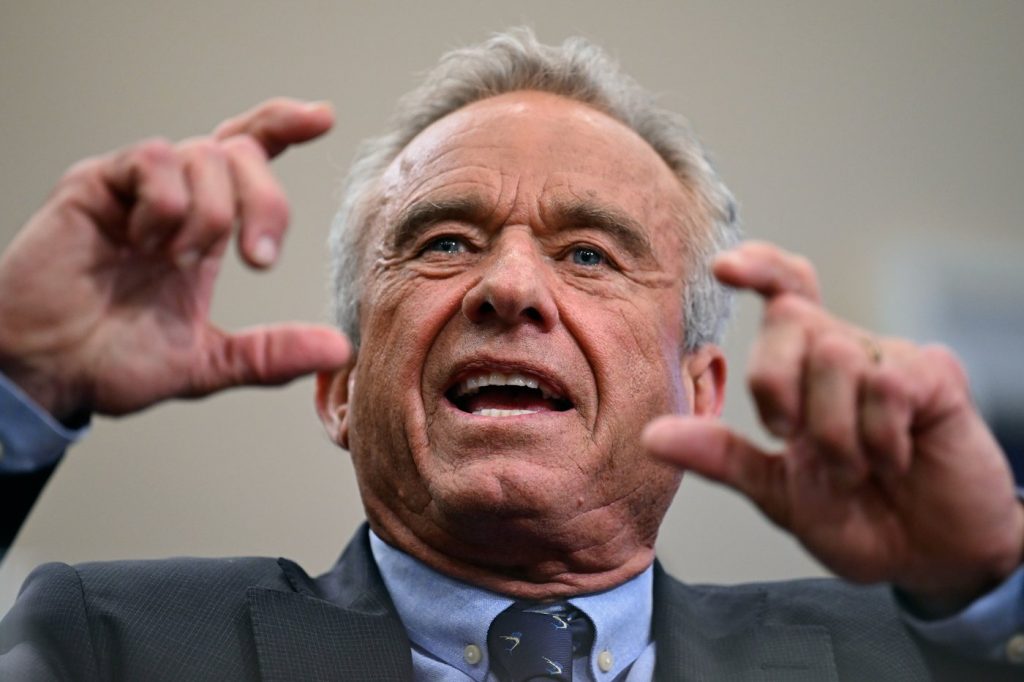On Wednesday, a bipartisan group of lawmakers expressed significant concerns regarding the actions of U.S. Health and Human Services Secretary Robert F. Kennedy Jr., highlighting issues such as deep staffing cuts, funding freezes, and substantial policy changes. These lawmakers warned that Kennedy’s decisions could undermine public health initiatives, particularly affecting vaccine uptake, cancer research, and dental health.
During a tense Senate hearing, Kennedy defended the Trump administration’s initiatives aimed at restructuring the sprawling, $1.7 trillion-a-year agency, arguing that these changes were necessary for achieving a more efficient department. He emphasized the chaotic nature of the department prior to his tenure, stating, “What we’re saying is let’s organize in a way that we can quickly adopt and deploy all these opportunities we have to really deliver high-quality health care to the American people.”
Lawmakers, including Senator Angela Alsobrooks of Maryland, challenged Kennedy about his department's operations, raising questions about his awareness of the implications of staffing cuts within his agency. Kennedy maintained that he had been too busy to provide detailed answers and questioned the lawmakers' understanding of health policy.
One point of contention was Kennedy's significant reduction of the department’s workforce, from 82,000 to 62,000 staff members. He also advocated for the White House's budget proposal, which includes a $500 million initiative named “Make America Healthy Again” focused on promoting better nutrition while cutting funding for programs related to infectious disease prevention, medical research, and maternal health. Kennedy mentioned that he successfully convinced the White House to avoid cuts to the Head Start program, serving low-income families.
Several lawmakers recounted the real-world impacts of these cuts on their constituents. For instance, Democratic Senator Patty Murray from Washington highlighted the case of a mother named Natalie, who faced delays in cancer treatment due to staffing reductions at the National Institutes of Health's Clinical Center, a facility critical for medical research. The proposed budget even suggested a nearly $20 billion reduction in funding for the NIH, drawing direct criticism from Senator Murray who prompted Kennedy to consider the ramifications of such cuts.
Additionally, Democratic Representative Bonnie Watson-Coleman of New Jersey questioned Kennedy’s decision to lay off nearly all staff overseeing the Low Income Home Energy Assistance Program, which provides $4.1 billion in heating assistance to needy families. Kennedy acknowledged concerns from advocates about the potential dangers of these cuts but pointed to Trump’s energy policy as a solution to reduce costs, committing to restore funding if necessary.
Concerns from Republicans were also evident, including those from Senator Lisa Murkowski of Alaska and Representative Chuck Fleischmann of Tennessee. Murkowski underscored the immediate need for assistance in her state, where families still rely on aging generators to keep warm. Fleischmann acknowledged Kennedy’s efforts in promoting healthy foods but questioned the evidence supporting claims about the dangers of artificial food dyes, warning of potential impacts on local manufacturers.
Furthermore, Kennedy’s proposed changes to fluoride recommendations, including the removal of fluoride supplements for children, alarmed several lawmakers. Representative Mike Simpson, a dentist from Idaho, emphasized that fluoride does not kill bacteria but rather strengthens tooth enamel, warning of the educational needs that would arise if fluoride was effectively banned.
Throughout the hearings, there was considerable scrutiny of Kennedy's mixed messaging on vaccines, especially amidst a growing measles outbreak across multiple states. Despite pressure from Senator Chris Murphy of Connecticut, Kennedy failed to endorse the nation's recommended childhood vaccination schedule. He incorrectly asserted that vaccines have not been tested against placebos, a point corrected by Senator Bill Cassidy, who outlined the numerous vaccines that have undergone sufficient testing.
Kennedy’s comments on vaccines and their purported effects, claiming they are “leaky” or even dangerous, drew sharp rebuke from Sen. Bernie Sanders, who stated that Kennedy had undermined the essential role vaccines play in preventing diseases during a major public health crisis.












